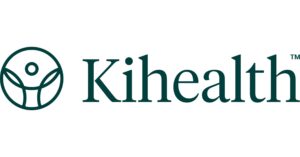Revolutionizing Preventive Health: Early Disease Detection and Metabolic Diagnostics with KiHealth
July 23, 2025 | 37 MIN

Highlights
- KiHealth pioneers early detection tests focusing on metabolic health to prevent chronic diseases.
- First clinically validated liquid biopsy test predicts type 2 diabetes two years before symptoms.
- Innovation originated from Yale University intellectual property, optimized for commercial scale.
- Tests are accessible online, in retail pharmacies, and through physicians, targeting affordability under $300.
- Challenges include educating healthcare providers, navigating insurance reimbursement, and empowering consumers.
- FDA approval and CMS coverage are strategic priorities to expand market access.
- Collaboration with pharmaceutical companies aims to improve therapeutic effectiveness via biomarkers.
Summary
In this episode of The Innovators and Investors Podcast, host Kristian Marquez interviews Jenna Anderson, CEO of KiHealth, about the company’s pioneering work in preventive diagnostics. KiHealth is revolutionizing healthcare by developing advanced liquid biopsy tests that detect diseases such as type 2 diabetes and potentially neurodegenerative diseases years before symptoms appear. The company’s approach focuses on early metabolic dysregulation, inflammation, and gut health as indicators of chronic diseases, aiming to shift healthcare from a reactive to a proactive model. Jenna shares the genesis of KiHealth, inspired by her mother’s early-onset Alzheimer’s diagnosis and the lack of early detection tools for chronic diseases.
KiHealth originated from intellectual property developed at Yale University and has since optimized and clinically validated a liquid biopsy test capable of identifying the rate of beta-cell death in the pancreas, predicting diabetes onset two years ahead of symptoms. The test is scalable, affordable (targeting under $300), and accessible via online, retail pharmacies, and doctors’ offices, with a comprehensive report guiding users on their metabolic health and next steps. Jenna emphasizes the gaps in the current healthcare system, including limited physician time, insurance reimbursement policies, and lack of patient empowerment, which hinder early disease detection and prevention.
She discusses the challenges of bringing university IP to market, including the significant funding and time required to scale laboratory innovations into commercially viable products. Jenna also outlines the complex stakeholder landscape KiHealth must navigate, including educating doctors unfamiliar with novel biomarkers, working with payers who struggle to align coverage with preventive diagnostics, engaging proactive consumers, and collaborating with pharmaceutical manufacturers developing therapeutic drugs.
The discussion highlights the strategic pathway to secure FDA approval and insurance coverage, noting the lengthy but evolving process, with Medicare and Medicaid as critical markets. Jenna explains how KiHealth is carving out a novel category in health diagnostics by focusing on early detection rather than competing with existing tests like HbA1c, which diagnose diabetes only after disease progression. The conversation also touches on the importance of epigenetics and personal accountability in health, enabling individuals to take charge of their wellness through informed decisions.
Finally, Jenna shares personal reflections on her entrepreneurial journey, the importance of perseverance and purpose, and offers advice for entrepreneurs working with university innovations. She underscores the loneliness and challenges of a CEO role but also the rewarding impact of building meaningful health solutions. Jenna invites listeners to connect with her and recommends mentor Kurt Busch as a future podcast guest.
Key Insights
- Early Metabolic Dysregulation as a Universal Indicator: KiHealth’s emphasis on measuring metabolic regulation, inflammation, and gut health taps into the root causes of many chronic diseases. This systemic approach allows for earlier intervention, which could transform healthcare from reactive treatment to proactive prevention, significantly reducing disease burden and healthcare costs.
- Liquid Biopsy Innovation and Scalability: The development of a liquid biopsy that analyzes 20,000 components from just 1ml of blood and deciphers beta-cell death rate is a technological breakthrough. Importantly, the journey from Yale’s initial IP to a commercially scalable, cost-effective test underscores the complexity of translating lab discoveries into real-world products, highlighting the need for iterative optimization of sensitivity, specificity, and throughput.
- Affordability and Accessibility as Core Pillars: By making tests available online, in pharmacies, and through doctors, and by targeting prices under $300 with FSA/HSA eligibility, KiHealth addresses key barriers to widespread adoption. This democratization of advanced diagnostics aligns with broader healthcare trends toward patient empowerment and direct-to-consumer health solutions.
- Healthcare System Barriers to Preventive Care: Despite technological advances, systemic challenges persist. Physicians face time constraints and guideline-driven reactive care models; payers hesitate to cover preventive tests due to unclear reimbursement frameworks; and patients often lack awareness or empowerment. These factors create inertia that startups like KiHealth must strategically navigate through education, advocacy, and stakeholder engagement.
- Strategic Stakeholder Engagement Across Four Fronts: KiHealth must simultaneously educate doctors unfamiliar with novel biomarkers, influence payers to recognize and reimburse new tests, empower consumers to demand access, and collaborate with pharmaceutical companies seeking early-stage biomarkers to improve drug development. This multifaceted strategy illustrates the complexity of innovation adoption in healthcare.
- Regulatory and Coverage Pathways Require Patience and Persistence: The company’s pursuit of FDA approval and CMS coverage highlights the lengthy timelines typical in healthcare innovation, with examples like Exact Sciences’ Cologuard illustrating that it can take over a decade to gain widespread acceptance. Nonetheless, regulatory evolution and increased emphasis on prevention may accelerate this path in the future.
- Epigenetics and Personal Accountability in Health Management: Jenna’s discussion about epigenetics shifting the narrative away from predetermined genetics to modifiable gene expression empowers individuals to take control of their health. This scientific understanding supports the value proposition of KiHealth’s diagnostics, enabling users to make informed lifestyle changes to prevent disease progression.
- Entrepreneurial Lessons in Healthcare Innovation: Jenna’s reflections on the CEO journey emphasize the importance of purpose-driven leadership, resilience through setbacks, substantial capital requirements, and the value of a strong advisory board. Additionally, her advice on engaging university IP highlights common pitfalls such as underestimating commercialization timelines and funding needs, which are critical for aspiring healthtech entrepreneurs.
- University Collaborations as a Fertile Ground for Innovation: KiHealth’s experience working with multiple universities reveals a rich but underutilized reservoir of biomedical innovation. The challenge lies in bridging the gap between academic discovery and commercial viability, complicated by funding cuts and institutional constraints, but offering significant opportunities for impact and legacy.
- Market Positioning by Creating a New Diagnostic Category: Rather than competing with existing diagnostic tests, KiHealth is carving out a novel market segment focused on early, preventive diagnostics. This forward-looking positioning anticipates a shift in consumer demand and healthcare paradigms, especially as a growing number of individuals lack primary care providers and seek direct access to health insights.
Overall, the podcast offers a comprehensive view of how KiHealth is pioneering a new era in proactive health management through cutting-edge diagnostics, navigating systemic healthcare challenges, leveraging academic innovation, and empowering consumers to take control of their metabolic and chronic disease risks before symptoms arise.
Stay up-to-date with Jenna Anderson and he work with KiHealth.
Follow the show on your podcast channel of choice or listen below:




